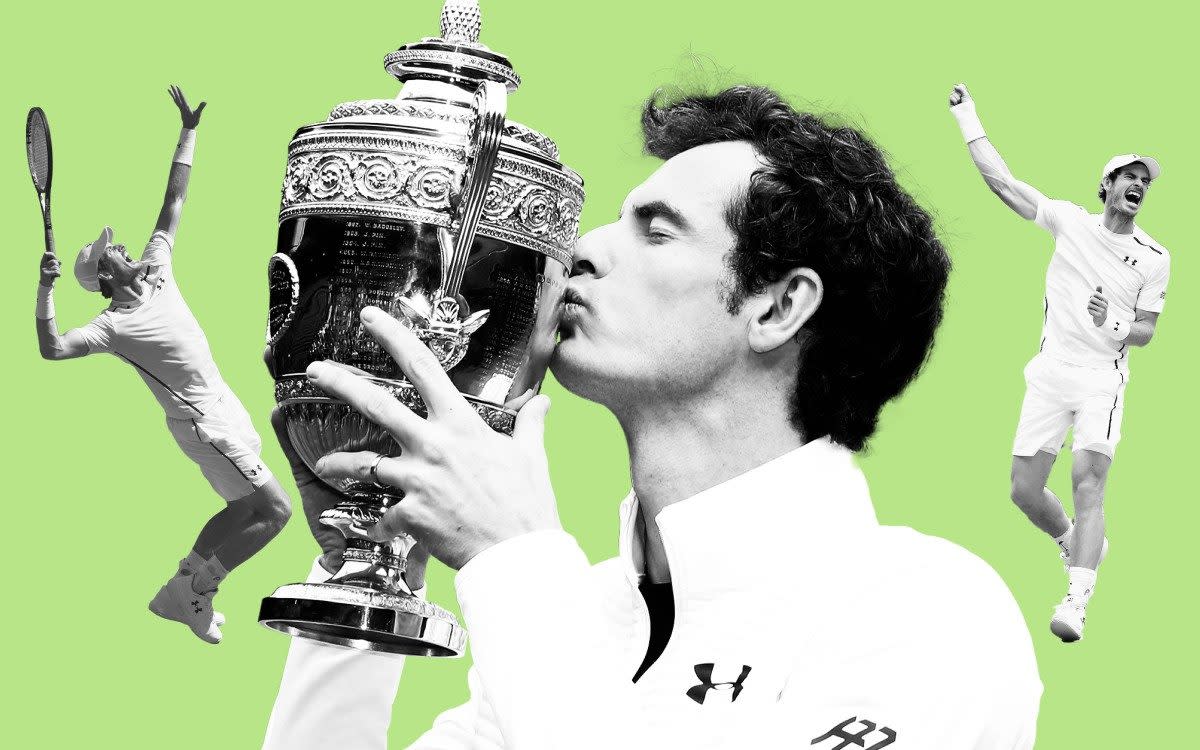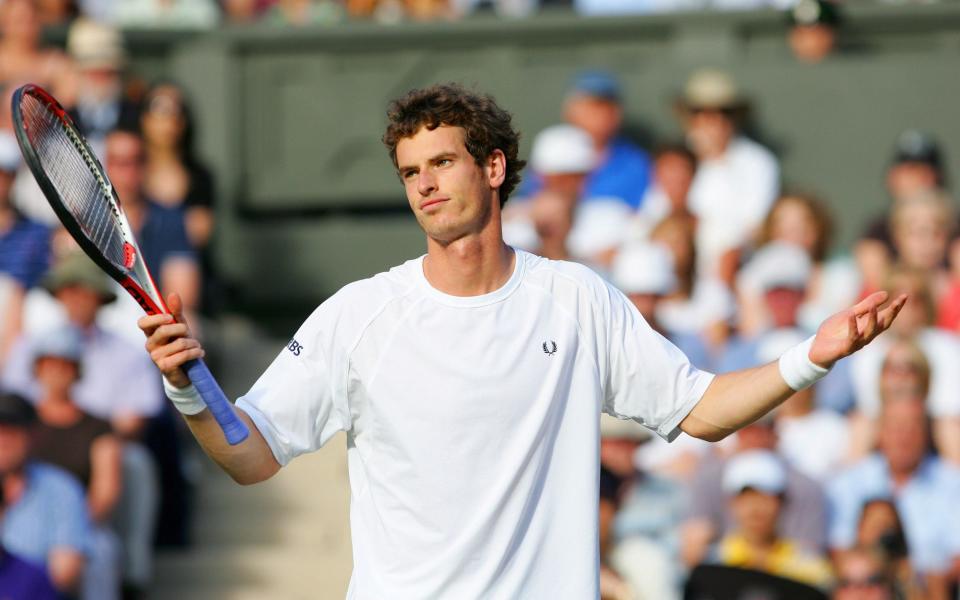Andy Murray’s Wimbledon story is one of defiance against history and snobbery

It was oddly shattering to see the plaque bearing Andy Murray’s name removed from the giant Wimbledon scoreboard, a quaint period piece that still requires a stepladder to operate. In that one moment, his 19-year career in the gentlemen’s singles was ended. Yes, there was relief that the tortured psychodrama of his fitness battle was over, with surgery for a spinal cyst a setback not even this indomitable athlete could surmount. But it was possible also to feel a profound sadness, a sense that he was leaving a crater that would take British tennis a generation, perhaps longer, to fill.
As Jack Draper assumed his time-honoured tea-time slot on Centre Court, the temptation was to depict the handover as a passing of the flame. The reality was more sobering. A vision of musclebound youth at 22, Draper formed the starkest contrast with the battered warrior 15 years his senior. To suggest that he was the nation’s heir presumptive, though, was laughably premature. Only once so far has Draper advanced beyond the second round at a Grand Slam. By his age, Murray had managed it 12 times, even reaching a US Open final.
I often found the opprobrium that Murray attracted, particularly in his early years, perverse. You did not have to go far at Wimbledon to hear grumbles about how he dressed, how he lost his temper, how he neglected to have a shave before competing in front of the Queen. Unflattering comparisons were drawn with neatly-groomed Tim Henman, beloved at this tournament for his crisp Oxfordshire elocution and whites so immaculate that he became the face of Ariel washing powder.

But then you compare the bodies of work. And while Henman drained every last drop of his talent in reaching six Grand Slam semi-finals, Murray proved that a player from these shores could smash through the next ceiling, booking a place in not just one final, but 11. That is why the closing of his Wimbledon singles chapter carries such significance. Murray carried a suffocating burden of expectation for the best part of 20 years, and he cast it aside by virtue of his own monumental effort. Here was one great who waged his defining battles alone – against the weight of history, against a national inferiority complex, against the snobbery of the British tennis establishment – and won them all.
The afternoon when he became Wimbledon’s first men’s singles champion for 77 years is seared on the memories of all present. I can still remember the crowd’s yelps of premature celebration when, on match point, Novak Djokovic landed a first desperate backhand on the line. When he netted a second, the out-of-body sensation, the realisation of what Murray had just accomplished, was so overwhelming that his wife Kim put her hands to her forehead and stared dead ahead, as if in a trance. In 20 years, I cannot think of a sporting occasion to match it for sheer catharsis. And all it is owed to one man and his insuperable resolve.
#OnThisDay in 2013... Andy Murray won #Wimbledon!
Check out more great Murray moments
🎾👉 https://t.co/sY3pQZpMku #bbctennis pic.twitter.com/tOdZx7cCqa— BBC Sport (@BBCSport) July 7, 2020
There is another reason why I believe Murray, clearly tortured that he cannot grace Centre Court one more time on his own, deserves every accolade and more. For while Roger Federer, with his balletic movement and courtly air, made tennis look blissfully easy, Murray reminded everyone that it was hard. You could see and hear how much it pained him, whether in his vitriolic rants to himself or in his cries of exhaustion as he pulled off another improbable return. Where Federer was possessed of an otherworldly gift, Murray brought a grind hewn by endless hours as a teenager on the Barcelona clay. Never the epitome of glamour, he sought merely to be the model of graft.
There are levels in sport, and Murray ascended to one unheard-of in postwar British tennis. Not so long ago, the high-water mark for a homegrown crop at Wimbledon was when Jeremy Bates made it to the middle Saturday. Murray had other ideas, as you could tell from the answer he gave, aged 18, to what it meant for him to become the British No 1. “Some people think that Britain equals the world,” he shrugged. “That’s not what’s important to me. No 65 in the world is more important than being No 3 or No 1 in Britain.”
It was always so refreshing, this habit of Murray’s to rail against mediocrity, to believe that representing Britain at Wimbledon should mean far more than collecting a fat wildcard cheque. His more determined critics can mutter if they wish, continuing to hold his lugubrious demeanour against him or the fact he once suggested that, as a proud Scot, he supported anyone but England in football. They will soon discover, however, that the void he leaves at the Championships is incalculable.

 Yahoo News
Yahoo News 
